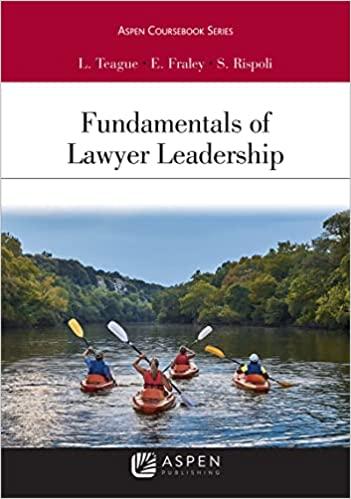Question
1) On Oct. 2, 2018 Jamal Khashoggi, a Saudi Arabian dissident, author, columnist for The Washington Post, and a general manager and editor-in-chief of Al-Arab
1) On Oct. 2, 2018 Jamal Khashoggi, a Saudi Arabian dissident, author, columnist for The Washington Post, and a general manager and editor-in-chief of Al-Arab News Channel and permanent resident of the United States, visited the Saudi consulate in Istanbul, Turkey, to pick up documents for his upcoming wedding. While inside, Khashoggi was brutally murdered by Saudi agents, according to Turkish officials. Khashoggi had moved to the U.S. in 2017, and worked for the Washington Post. He was a well-known critic of Saudi Crown Prince Mohammed bin Salman's (MBS) harsh treatment of journalists and the regime's role in Yemen's civil war. For several days, President Donald Trump urged the public not to pass judgment on Saudi Arabia, a long-time ally of the U.S., until the facts were known. Trump's reaction led to criticism from abroad and inside the U.S., since America has long been viewed as a key protector of human rights and freedom of the press.But in the early hours of 20 October, state television reported the journalist had in fact died in the consulate after a fight.It finally said that Khashoggi had been murdered in a "rogue operation" and vowed to punish "those responsible".A Saudi official told Reuters news agency that Khashoggi had died in a chokehold after resisting attempts to return him to Saudi Arabia. His body was then rolled in a rug and given to a local "co-operator" to be disposed of. A Saudi operative then reportedly donned his clothes and left the premises.The authorities announced the arrest of 18 Saudi nationals and dismissal of two senior officials - deputy intelligence chief Ahmad al-Assiri and Saud al-Qahtani, a senior aide to Prince Mohammed.
A. How should the U.S. respond to governments who jail or kill journalists?
B.What do you know about freedom of the press in the U.S.? How about in other countries? What does the U.S. Constitution say about freedom of the press? Does it end at our borders?
2) The decision in Brown v. Board of Education, there has been a trend in re-segregation, in both race and poverty,all over the United States in the last 20 years.What has caused this trend and what protective measures do you propose so that all students, regardless of race or wealth can have equal access to a quality successful education?
3) Miranda v. Arizona involved balancing the individual rights against the desire of society to fight crime. How do Justice Harlan and Chief Justice Warren disagree in how they believe these rights and values should be balanced? Has reading the excerpts from the majority and dissenting opinions changed your opinion about the case? How?
4) Riley v. California case was decided by the Supreme Court in 2014. Provide your comments regarding Fourth Amendment rights in the digital age.
5) The country is waiting for the Supreme Court's decision in Dobbs v. Jackson Women's Health Organization. At issue is whether Mississippi can impose a 15-week limit on abortions. That is earlier than previously allowed by the court, but the United States is one of only seven among the world's 198 countries to allow abortions after 20 weeks. While the court could simply overturn Roe v. Wadeand return the area to the states, it is more likely that the court will increase the authority of the states while recognizing constitutional protections for such reproductive rights. That could result in a major reframing of "previability" cases. After Dobbs was accepted, advocates sought to enjoin ("prohibit") a Texas law that banned abortion after just six weeks. The Supreme Court refused to block the Texas abortion law in its decision last month - Supreme Court Refuses to Block Texas Law. Where in the Constitution is an individual's right to abortion protected? Is it possible to strike a balance between an individual's constitutional rights and the government's interests in a potential life and a pregnant person's health?
6) Many of the decisions the Supreme Court of the United States makes are based on the principle of stare decisis, which means let the previous decision stand. In the case of Gideon v. Wainwright, the Court broke with a precedent it had established. Why or why not it was justified in doing so.
Step by Step Solution
There are 3 Steps involved in it
Step: 1

Get Instant Access to Expert-Tailored Solutions
See step-by-step solutions with expert insights and AI powered tools for academic success
Step: 2

Step: 3

Ace Your Homework with AI
Get the answers you need in no time with our AI-driven, step-by-step assistance
Get Started


